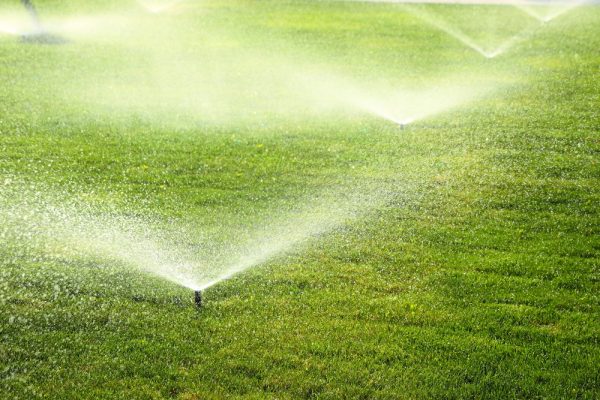
The summer can bring dry heat which evaporates moisture from the ground. Besides the occasional summer thunderstorm, plants and green grasses often turn brown as they are baked in the sun. Lawn and garden irrigation can fill in the gaps where Mother Nature lacks.
How to Create A Beautiful Lawn?
A beautiful lawn takes preparation and planning. With a little research, you can have the kind of lawn you have always dreamed of. First, there are some things you need to consider.
- Current Type of Grass-What kind of grass is already growing? Amongst the weeds, there are many different types of grass commonly found in New Jersey. There are several varieties of cool and warm-season grasses. Some varieties include Kentucky Bluegrasses, fine and turf-type tall fescues, and perennial ryegrasses.
- Drainage- What kind of drainage does your lawn experience? Does your yard flood? Where does water puddle? Or does it dry out in certain areas?
- Climate- What type of climate zone do you reside in? New Jersey can range anywhere from zones 6a to 7b. New Jersey can experience harsh winters but is considered a subtropical region. Also, some grass seeds need more attention than others. For example, fescues do not require much maintenance at all.
- Desired Grass- What kind of grass would you like to grow? Kentucky Bluegrass is the most desired option in New Jersey. Some people choose to mix their grass seeds. Doing this helps prevent pests from demolishing your entire yard. Certain grass seeds grow faster than others. You may have spots higher or different colors. If that is not the look you desire, picking one seed and sticking with it may be a better option.
- Getting started- loosen up the top four inches of dirt. Laying down ⅓ black dirt, ⅓ compost, and ⅓ sand will give your lawn a great start. After examining your yard you will pick a seed that either does well in the shade or sun. After a season or so it’s a great idea to add a shade variety to your mix especially if you have some trees and bushes.
- Setting up for success- Aerating your lawn before you seed can decrease the amount of seed waste. Aerating encourages germination of grass. Setting up some type of watering schedule or Irrigation system is recommended. Just like humans, plants do well with a rhythm. Knowing when to expect water daily will help plants thrive.
What Is Irrigation?
Irrigation is a process in which you bring water to the land outside of natural precipitation. Anyone can create an Irrigation system. You can even build your own out of a water hose with holes. They range from do-it-yourself systems to industrial size crop systems. In the late 1800s, the first sprinkler irrigator was patented. It was called the “Skinner System,” after Charles Skinner, a farmer from Ohio. There are several different types of systems today. For example:
- Surface irrigation method
- Drip irrigation method
- Central pivot method
- Sprinkler irrigation method
- Furrow irrigation
- Basin irrigation
- Sub irrigation
- Lateral move
- Manuel irrigation
- Border irrigation
Many people invest in residential sprinklers. These systems are often set on a timer and water at the same time every day. They are adjusted to the residents’ liking. These are great tools to help support a healthy lawn and garden. There are several different types of systems today.
Why Irrigation Is Important?
Irrigating the lawn helps keep the soil moist and your plants from dehydrating. This process will help keep your lawn full of life.
If you are located in Allendale, NJ, or the surrounding areas and would like further information about lawn irrigation contact today! Chris James Landscaping has been in business for over 40 years servicing the lawns and gardens of the beautiful garden state!
